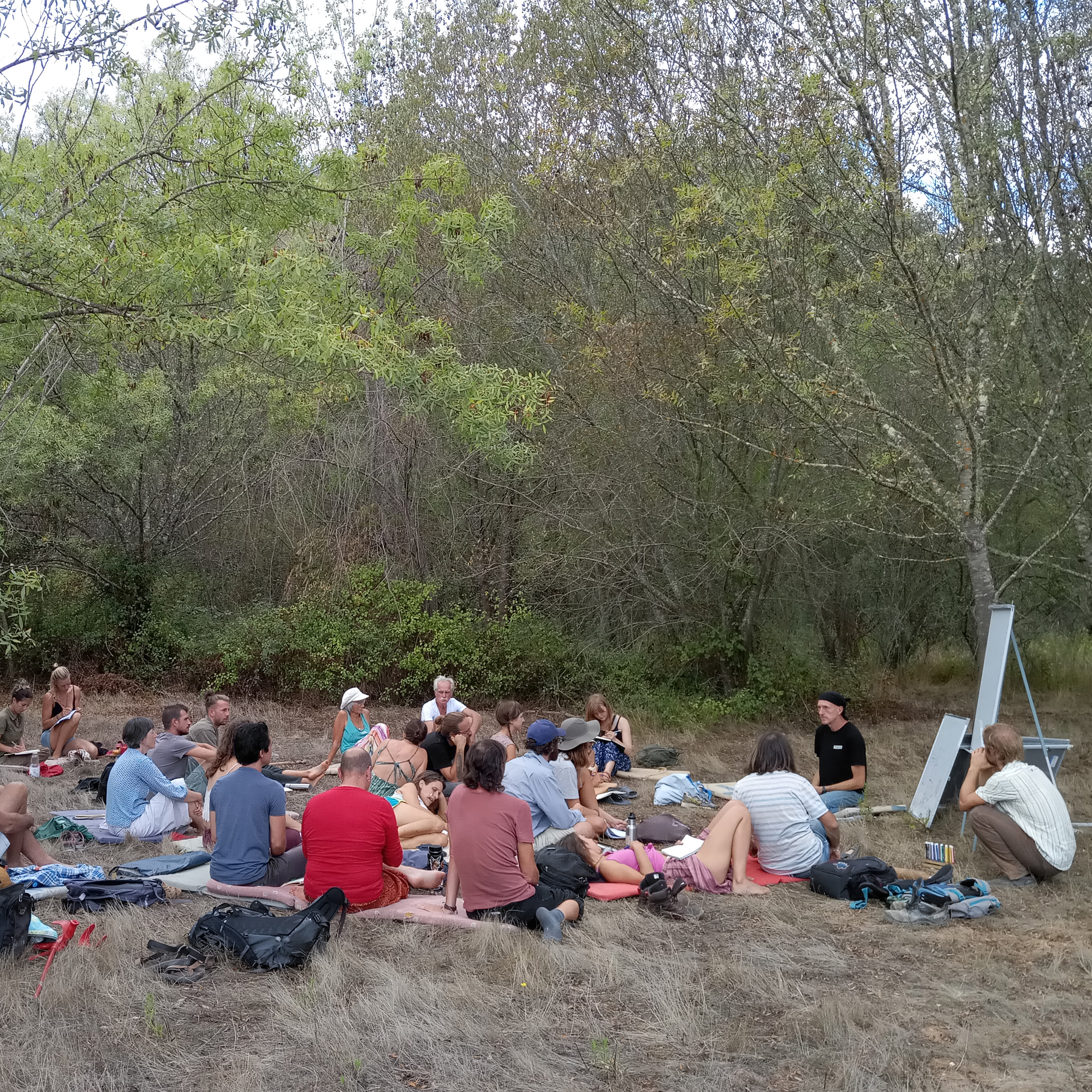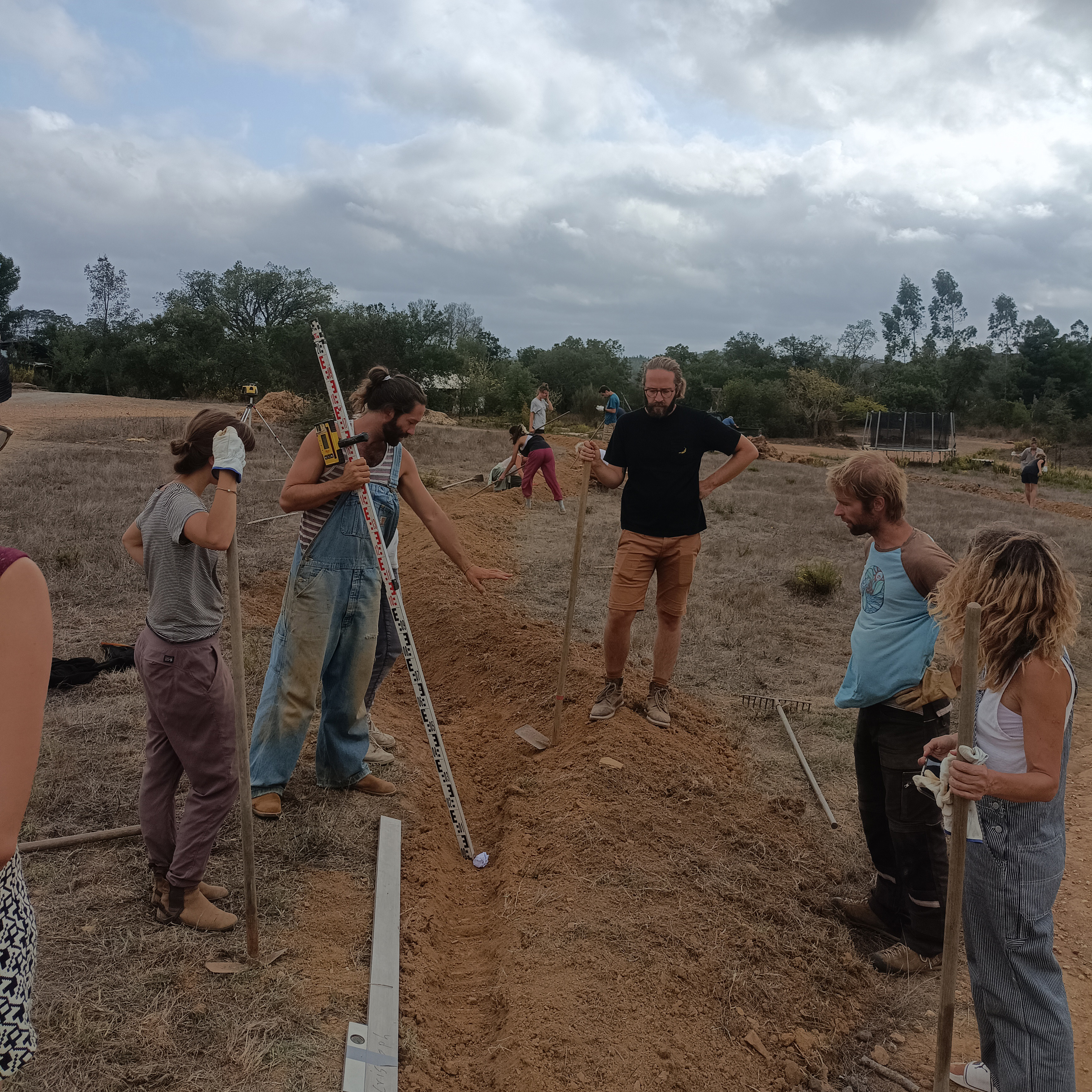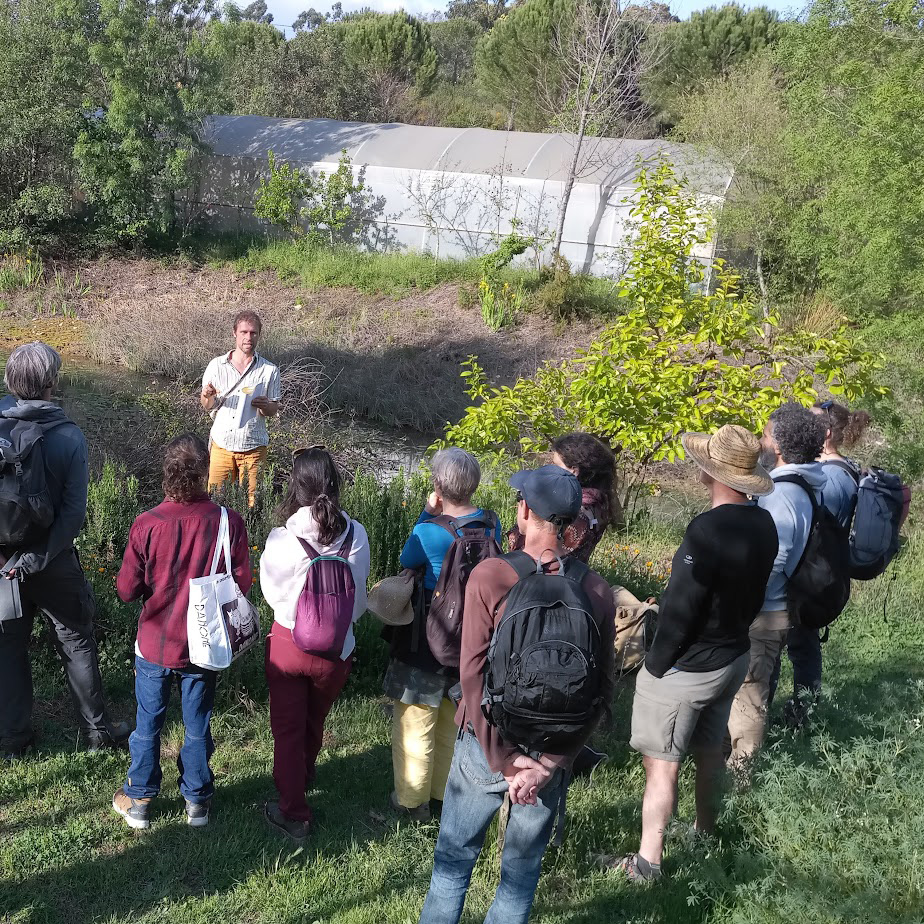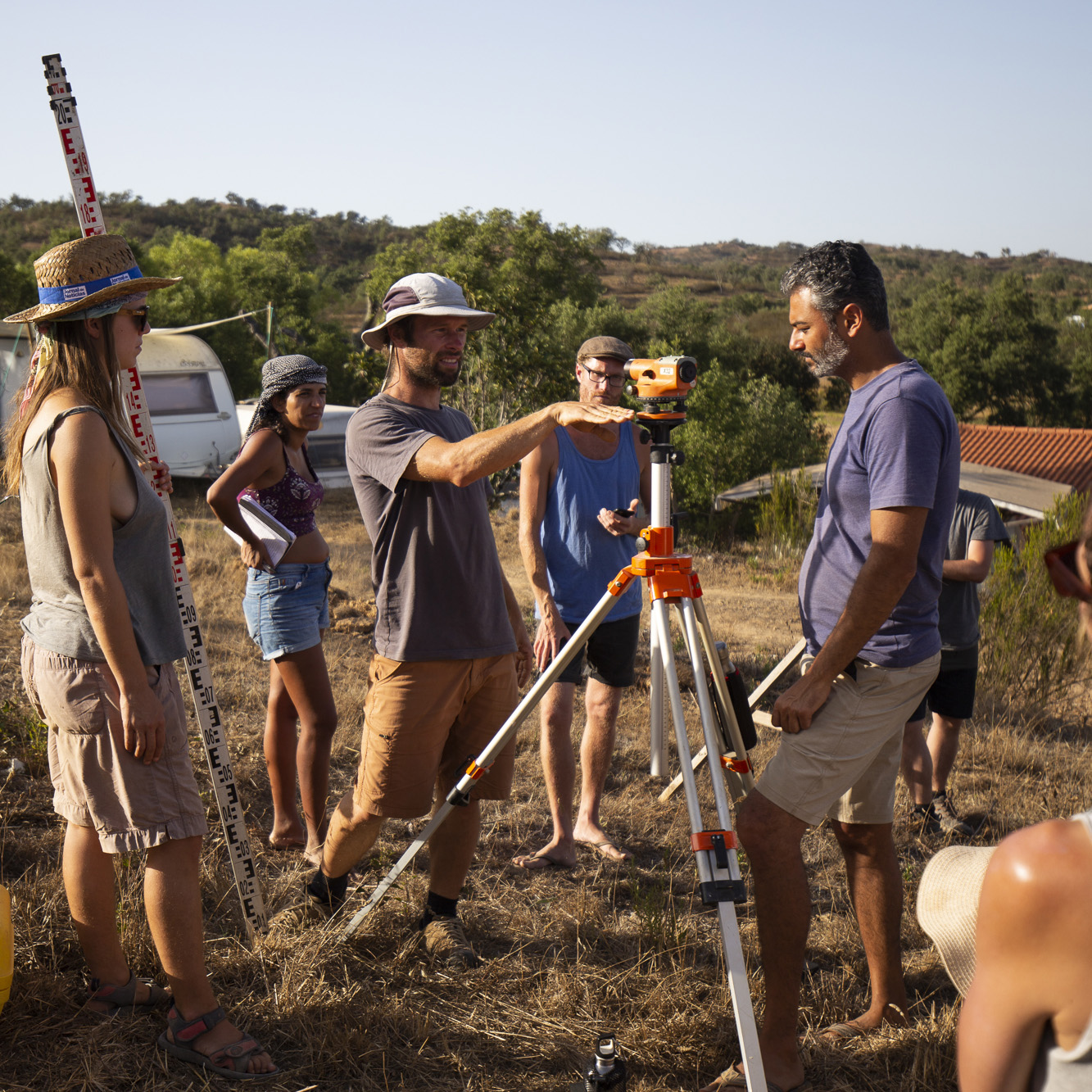Water Retention Landscapes
Accepting our Responsibility as Land Stewards
Water is key in a landscape’s capacity to harbor life. Without water we wouldn’t be here. The impact of human activity has changed landscapes around the world on a large scale. These degraded landscapes and ecosystems lead to a broken water cycle and to anthropogenic climate change. Creating decentralized Water Retention Landscapes (WRL) is a regenerative practice that engages us with the ecosystems that sustain us and our wider community. It’s a wholesome way to be in relationship with water, land, and everything that follows. Think globally, act locally.
Unsustainable water management is practiced in agriculture, urban planning, forestry, fishing, water treatment, and other industrial processes which fuel global modern society. Knowing this, we are also aware that the landscapes we inhabit and co-create are a direct reflection of our “inner landscapes”. Extreme weather patterns and degraded ecosystems are mirroring the imbalance of our social and economic systems.
“Action on behalf of life transforms. Because the relationship between self and the world is reciprocal, it is not a question of first getting enlightened or saved and then acting. As we work to heal the earth, the earth heals us.”
Robin Wall Kimmerer, author of “Braiding Sweetgrass: Indigenous Wisdom, Scientific Knowledge, and the Teachings of Plants”.
Program Details
This 10-day-course is for everyone who wants to learn about regenerative practices concerning land, water, people, and our relationship with the Earth. It offers a comprehensive view into the underlying principles of water retention landscapes, a design approach, tools, and practical examples for the creation of scalable Water Retention Landscapes. Tamera’s land and surroundings will serve as a model to show different techniques to retain water, accumulate nutrients, build soil, and increase biomass and biodiversity.
We’ll apply the principles by building rain water harvesting structures on site. Step-by-step through hands-on learning we will understand the specifics of a particular location. Community context and the role of people in system change is another important aspect which we will study. We’ll explore how trust building among people is crucial in developing the capacity for land stewardship.
Excursions into our surroundings will help us understand the local and regional context of the water situation. We’ll address global issues like flooding, major fires, desertification, a declining groundwater table, and exploitive water policies.
We’ll utilize the “Scale of Permanence” (P.A. Yeomans) as a design framework to help us sort information about specific areas of land and come to better informed decisions from observation through planning and designing to implementation. Toward the end of the course we’ll offer remote consultations for 2 properties serving as real life examples which will be presented by the course participants. If you are interested in sharing your project as an example please write to ecology (at) tamera.org and we’ll talk about further details.
You’ll explore:
- basic principles and techniques of the Water Retention Landscape
- decentralized WRL as a scalable model
- the impact of centralized water systems with examples from our region
- how to reverse desertification
- large and small water cycles
- broken water cycles
- integrated water systems for drinking water, wastewater
- vegetation management in WRL
- outer & inner landscapes, deep ecology exercises
- team play in hands-on work outdoor
The program will be composed of:
- a preparation package (with links, questions related to content, and information about Tamera)
- planning and designing exercises with Scale of Permanence
- utilizing maps, aerial imagery
- understanding watersheds
- reading the landscape (outdoor exercises)
- measuring and marking contour lines (outdoor exercises)
- implementing different techniques for water retention
- excursions
- a digital folder with course content
- access to Tamera’s public events and public spaces
Comments from previous course participants:
“Very well organised educational and spiritual event to get in touch with the value of the water. I´ve got tons of inspiration to change the approach to water management. It is a radically positive experience.”
Jaroslav
“If you are looking for a course that will give you good quality knowledge, explains the problems relating to water scarcity in a holistic way and searching for solutions and answers to solve our management of water, this is the course. I feel so grateful and humble for this experience and for this inspiring course. I felt so inspired to continue on this path of how to save, protect and connect with water again.”
Solvei
“Learning about how to heal the landscape, the water and our community while healing myself was an amazing experience. Thanks for sharing all the work and love with us.”
David
Prerequisites
Work through the preparation package you’ll receive prior to the course.
Cost
Sliding Scale from
€890 to €1450
(including seminar fee, board & accommodation)
Why are we using a sliding scale?
Please consider applying for or donating to our solidarity fund if you can’t pay the lower end of the sliding scale or want to support others.
Our invitation to Portuguese nationals.
Payment Policy
Once you have filled out the registration form, we will send you an email with instructions on how to pay.
Please note that in order to confirm your registration, at a minimum, you must pay a non-refundable registration fee of €210.
Accommodation
Dormitories, own tent, or own van.
A room in the Guest House can be booked at an additional cost.
Food
Vegan full board
Language
English
Arrival and Departure
Please arrive the day before the course begins and depart the day after the course finishes.
Children
Please note that it’s not possible to bring children to this course.
Pets
Please note that it’s not possible to bring pets to this course.
Pictures from previous courses:



